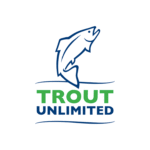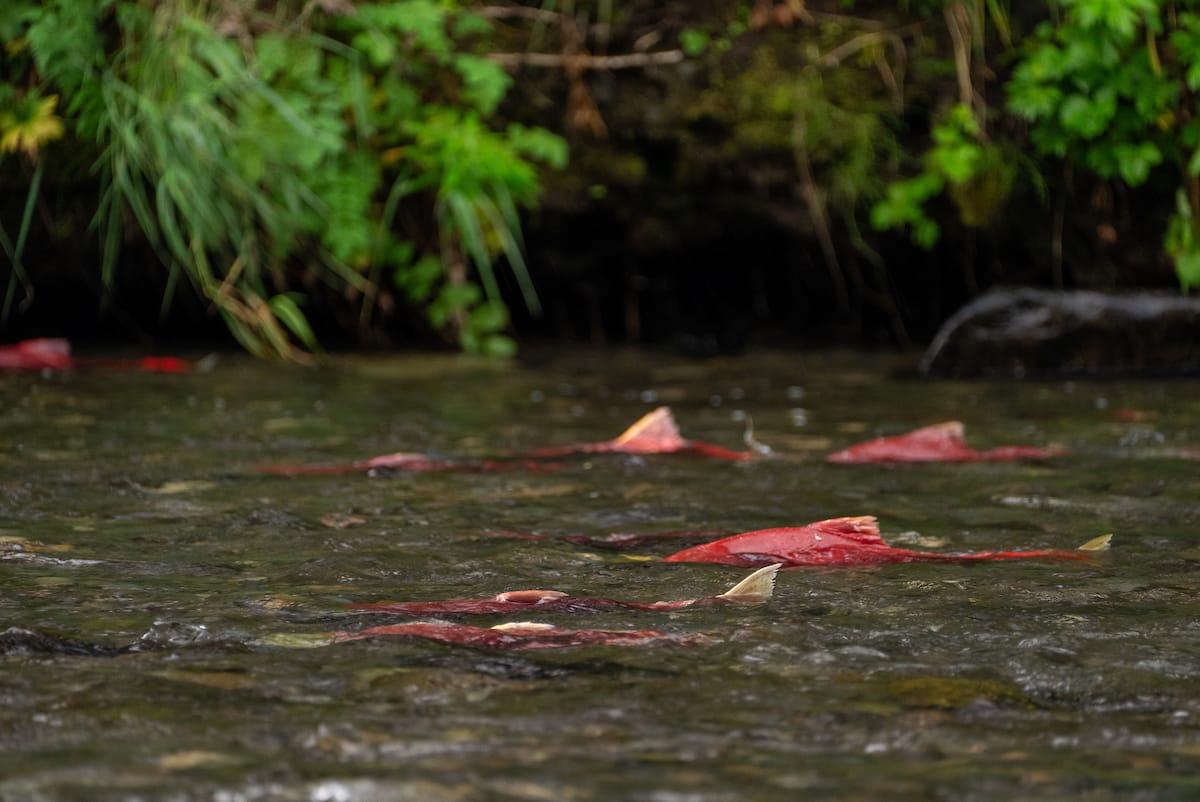Once upon a time there was a dude who drove a blue, manual transmission Ford Focus into California’s Sierra Nevada by himself to catch rainbow and brook trout on caddis flies he tied himself. He thought highly of himself. He had persevered through the days of catching branches and bushes more than fish and graduated to missing strikes and settling for pushover fish and leftover stockers.
He started writing about it all and always had a few John Gierach books in the trunk next to his Play-it-Again-Sports golf clubs and emergency polo shirt in case the course he and his buddies wanted to play had the lowest standard for attire. He was single. Very, very single.
He is obviously me, but there is a point when you look back at your life and it seems like a different one. Enough time has passed, and circumstances have changed to make it seem like a previous life or a movie you watched. I’m living one island east of where I grew up in Southeast Alaska. I’m married. The Ford Focus has been replaced as has its replacement. I’m married to a woman who loves to fly fish too and our first baby was born on Sept. 18.
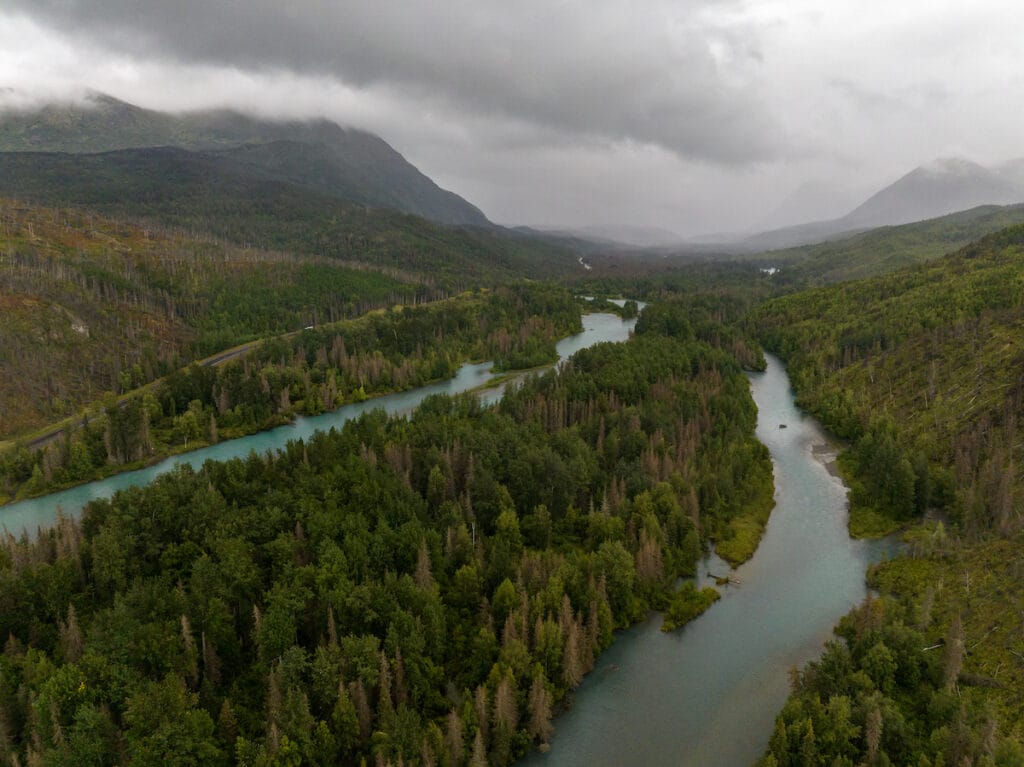
It’s almost odd to look back at milestones and what they meant to me at the time. First fish on a fly rod. First fish on a dry fly I tied. First twenty-fish day. First 20-inch fish on a No. 20 fly I tied myself. Then moments like showing up to the closest brewery for a burger and beer, with that uncanny odor of sweaty clothes that cooked in a Gore-Tex crockpot all day. The day started early, the fish were hitting, and a big meal and a couple beers were earned.
I lived in California out of college and taught high school English at a school that was three times the size of my hometown of Klawock, Alaska. The easiest way to ensure I was fishing legally in the Lower 48 was to pick up fly fishing, so I spent as many weekends as I could feeding my new passion by fleeing the central valley for wilderness to the east. My childhood need for competition, challenges and visceral experiences fulfilled by basketball shifted to angling with the set up I used to mock as a teen.
What I found in fly fishing was something more than just a recreational activity or simple fun. It ignited a deeper passion for words–-reading them and writing them. I am incredibly thankful I chose something so therapeutic yet stressful, so easy yet impossible, so fulfilling yet heartbreaking to fill my hours away from work.
It’s ridiculously early, but I want to present this life to my newborn daughter and hope she takes. Reading is good and worthwhile. Original thought birthed in experience, not AI, is worthwhile. Caring about sustainability is good and worthwhile. Fishing is good and worthwhile.
Studies have shown that reading to children is important to stimulate neurological growth as well as a strong connection with parents. So, I read John Gierach’s essay in the September 2024 issue of TROUT on the fifth day of her life. The next day was E.B. White’s 1923 trip to Alaska. Then essays from David Coggins, Dylan Tomine and others. She has no idea what I am reading and won’t remember it, but it still matters for reasons beyond the science behind reading to your kids.
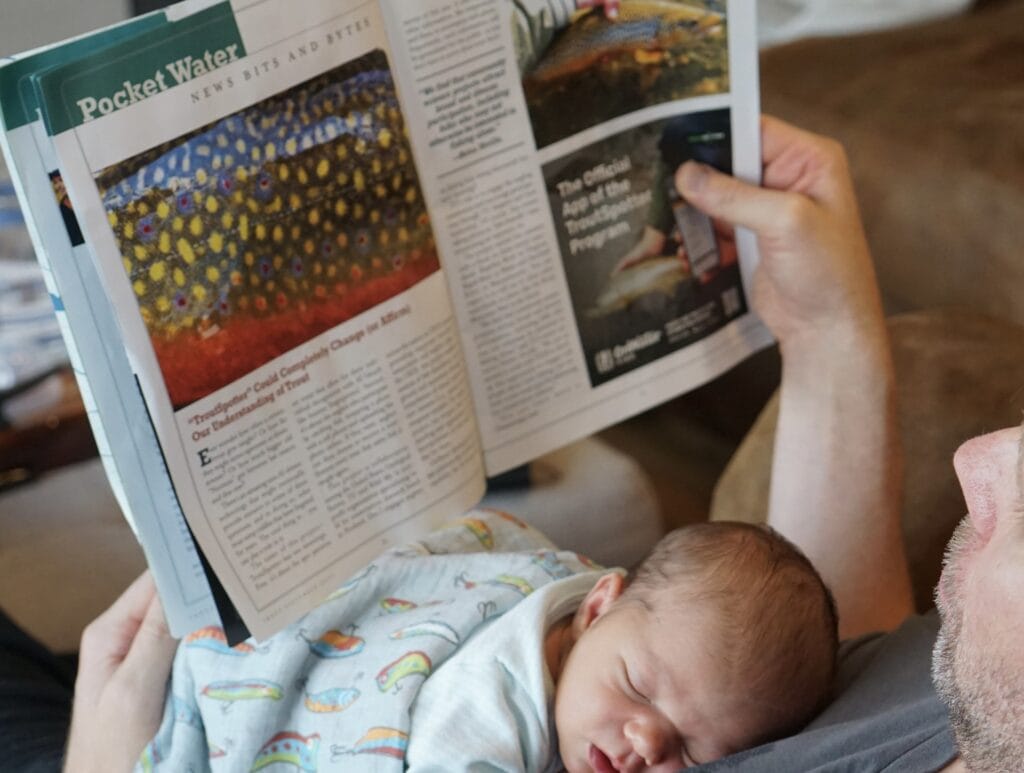
Kids become aware of the complexities of life earlier and earlier and often find reasons to be angry rather than effective ways to cope. I don’t want my daughter to see fly fishing and fly fishing literature as avoidance or being indifferent toward the travesties of real life.
Stories about fly fishing are often enjoyable because they aren’t lectures meant to bury guilt past the barb. Some are more subtle than others, but ultimately the variety and dynamism of the genre provides something for any mood. It’s hard to read about living sustainably or helping to restore habitat and not want to get involved. These are calls to action that result in a better, purposeful existence. One with tangible results that aren’t available to those who are hooked by mindless digital activism.
I want her pursuit of fish to be inextricably tied to history, ecology and talking to experts not only on what fly has been working, but what work might need to be done. I don’t want her to be in a constant state of panic over our inability to corral our appetite for energy which increases demand for fossil fuels as well as mining components for clean energy. Or that runs have been reduced to crumbs, and we’re either directly or indirectly finishing them off. But I do want her to entertain her questions knowing that restraint and forward-thinking conservationists made what we have now possible and are leading the charge for better solutions in the future.
If nothing else I’m excited to pass on a library of work about something worth loving. Essays about fishing are essays about life which is why they are never redundant. I can pick up a Gierach book and remember a description of how different firewood burns and read it anyway. Writing about fishing is about paying attention to everything for more complete enjoyment, but maybe remembering the number just in case a situation calls for a more detailed recap or even modest boasting.
I can’t wait until Haleigh rolls out her first cast toward a rising rainbow, hucks a streamer that lands with a splash before its swing in front of a steelhead or plops down a foam grasshopper in a brown trout’s lane.
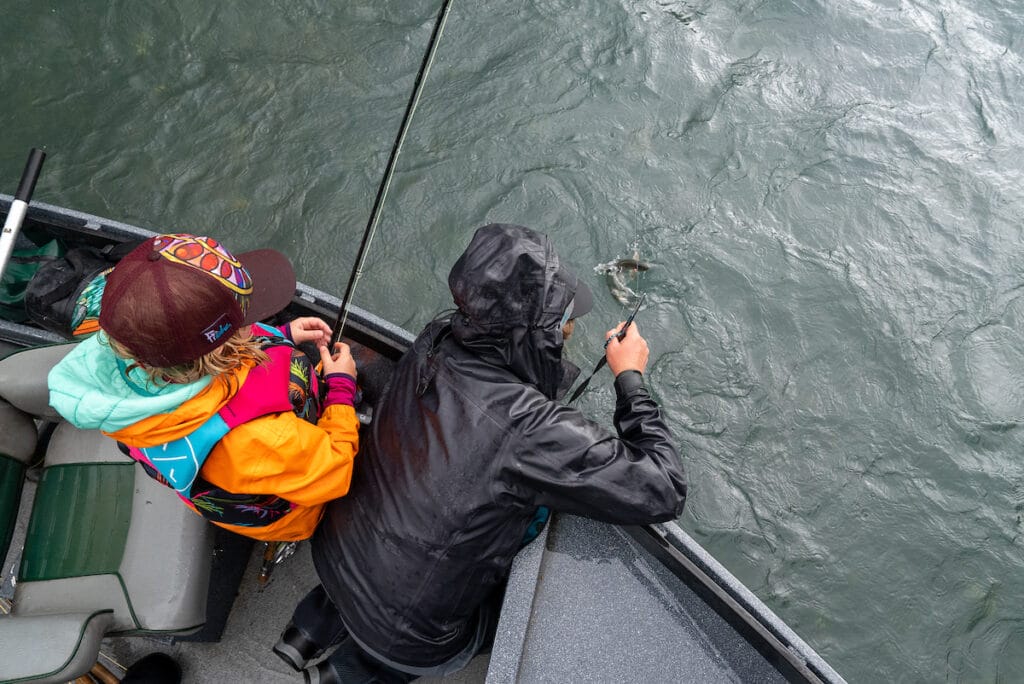
Fly fishing has been stale and elitist and proper, but it’s also been gritty, honest and thoughtful. I want my daughter to care about such things. As the world continues on its path of digital satiation, I want her to love things that are real.
I want her to have the joy that fly fishing brought me. The sleepless nights, the long drives, the ripped waders, the broken rods, the lost fish and the success. The type of life that is worth talking about, reading about and writing about. The type of weekends worth remembering and meeting people who might have different beliefs, but who prioritize deeper values and who gather to talk fish.
Jeff Lund is a freelance writer based in Ketchikan, Alaska. His podcast “On Step Alaska” can be found wherever you listen to podcasts. His book, “A Miserable Paradise: Life in Southeast Alaska” is available in local bookstores and at amazon.com.


